It’s shocking how much we don’t know that we don’t know. Let me introduce you to Ground News Pro - a news source comparison platform that adds a valuable bias analysis layer over current news event coverage.
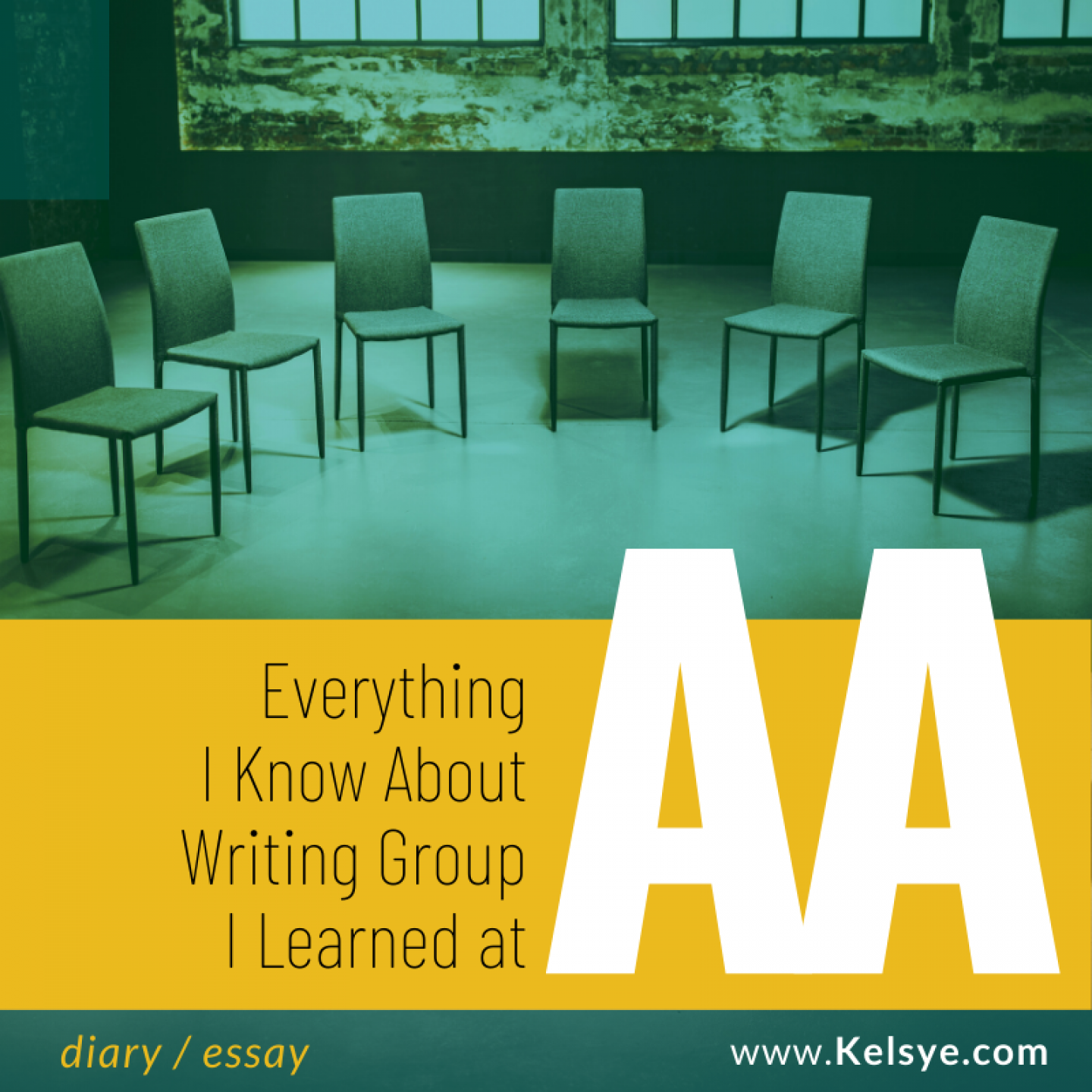

It’s shocking how much we don’t know that we don’t know. Let me introduce you to Ground News Pro - a news source comparison platform that adds a valuable bias analysis layer over current news event coverage.
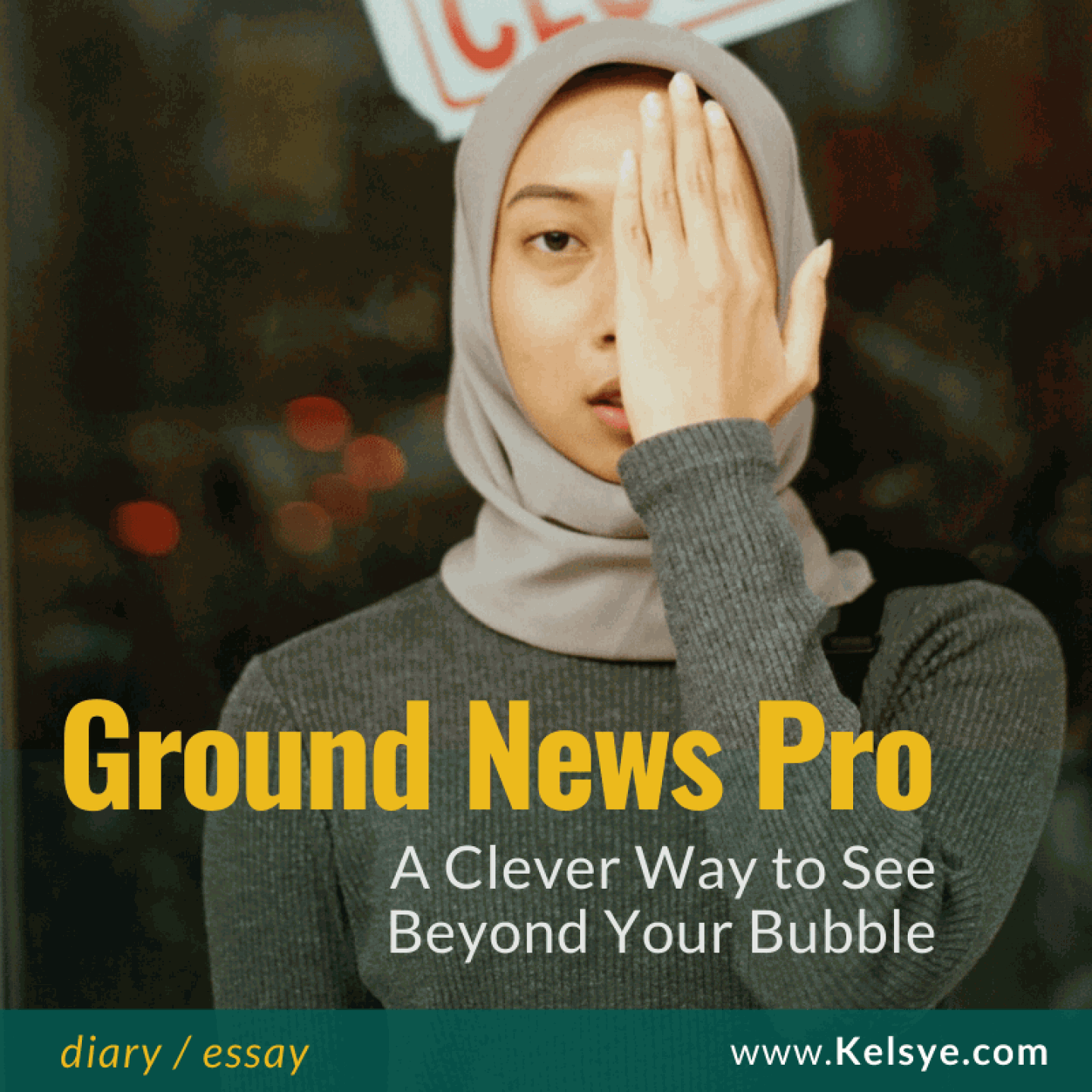
It’s shocking how much we don’t know that we don’t know. Let me introduce you to Ground News Pro - a news source comparison platform that adds a valuable bias analysis layer over current news event coverage.
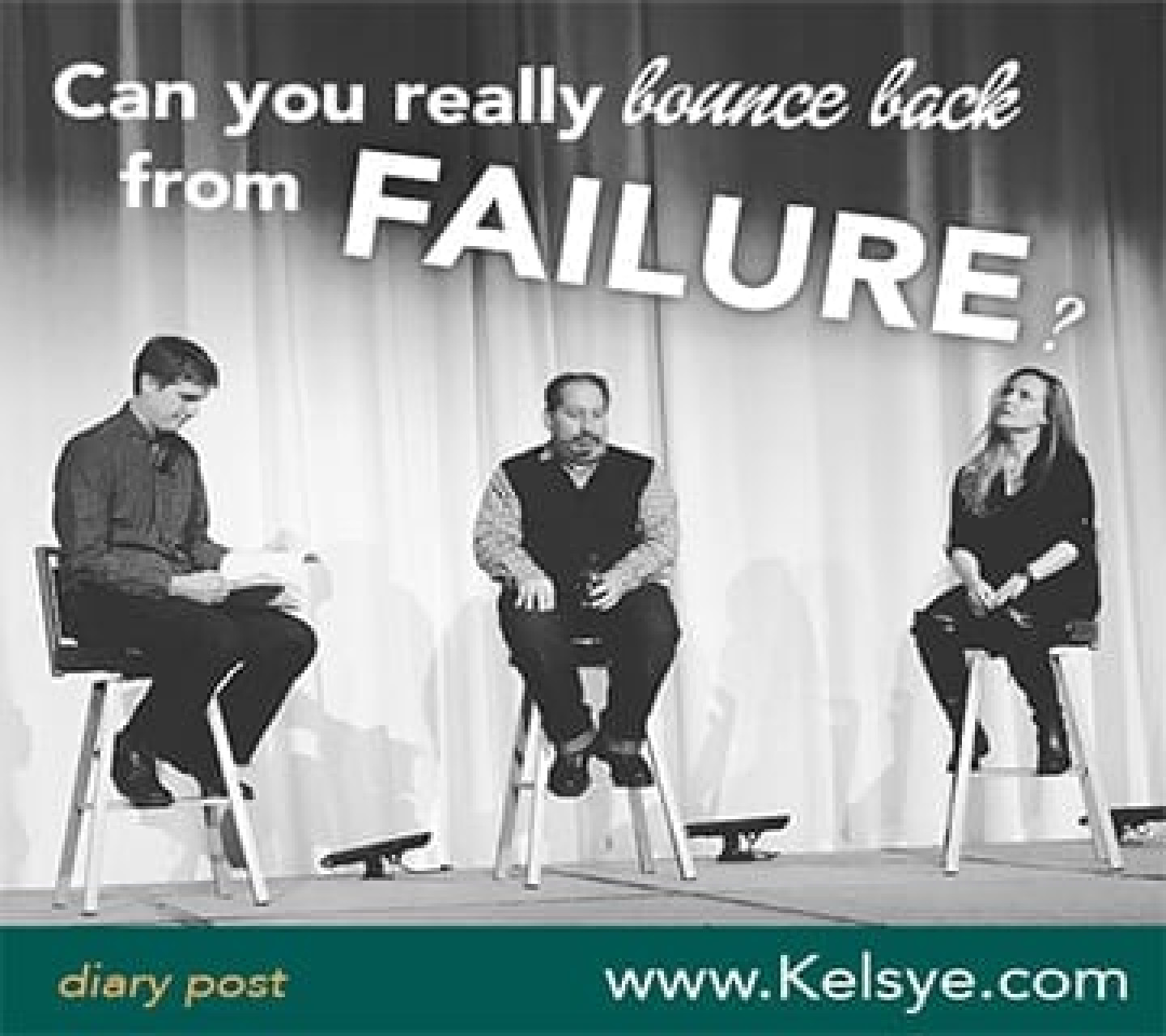
Imagine how honored I felt when asked to speak on the main stage at Geekwire's Startup Day? The request made me giddy. I've long admired the Geekwire crew and the articles they produce. They needed someone with expertise in failure. Uh, thanks for thinking of me guys.
Did you know that a New York Times survey found that 81% of Americans either plan to write a book or have already done so?
You may be painfully aware that writing a book and publishing a book are two very different accomplishments.
Writing provides great personal satisfaction. However, it’s when we share our stories with others that our work takes on a new life.
The past few weeks, I interviewed 43 writers aspiring to publish their first books. When asked why they were motivated to take the big leap into publishing, they gave brilliant wonderful answers.
Do any of these sound like you?
Tim Cahill, founding editor of Outside magazine had this to say:
Or perhaps you agree with Sylvia Plath who remarked:
Ready to realize your goal? Now’s the time to clear out your desk drawers (or computer folders) and get your work out into the world where it belongs!
I invite you to join my online course How to Self-Publish Your First Book. This course is specifically designed for those of you that need a lot of basic help to navigate the indie publishing world.
The publishing process doesn’t need to overwhelm you. Gain a clear understanding of what it takes to be an indie author. Confidently advance your project from rough manuscript to published book. Experience the satisfaction of holding your finished book in your hands and the joy of hearing from your first readers.
Through my work with Writer.ly, at the University of Washington and as a publisher, I’ve witnessed first-hand the thrilling moment when writers become authors. Man, that’s powerful stuff — the tasty fruit of dreams, effort and heartfelt aspirations. I would be so honored to work with you in my class and get to be a part of your transformation from “aspiring author” to “author.”
To reward you for bravely claiming your intention to publish, you’ll save $150 when you sign up right now.
IMPORTANT: This weekend preview deal ends Sunday night.
I would love to hear your reasons. Leave a comment and let me know!

Learn exactly what you need to do in order to take your work from rough manuscript to published book. Online course delivered over 4 weeks. Watch the recorded sessions on your own and join the live sessions for direct help.
Click here for How to Publish Your First Book course info.
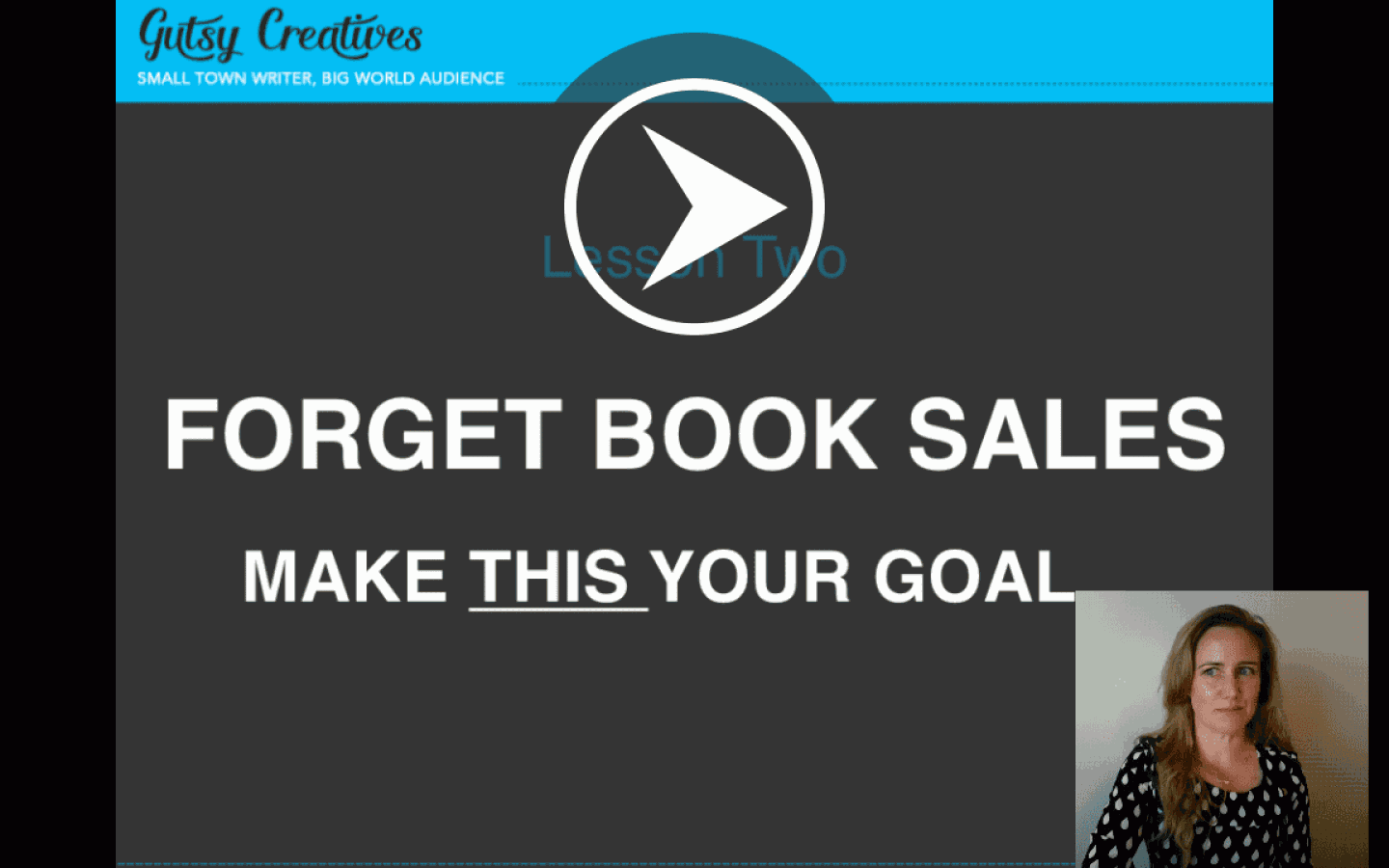
Yep. Many extraordinarily successful authors use another goal to maintain career longevity.
Want to learn the big secret? Watch the video below to learn how achieve your writerly dreams by attracting true fans rather than chasing after book sales.
This lesson comes from my course Small Town Writer, Big World Audience. You can join the class and watch more lessons here. Enjoy the free class and good luck on your platform building endeavors!
P.S. Watch your inbox in the next few days for an invite to a free workshop for folks looking to set up their first marketing funnel. Watching the lesson above about true fans will give you the background you need to get the most out of the marketing funnel workshop. Not on my email list? Craziness. You should sign up so you don't miss out on all the freebies. Sign up now and I'll send you my Freebie Cheat Sheet with 33 giveaway ideas for authors.
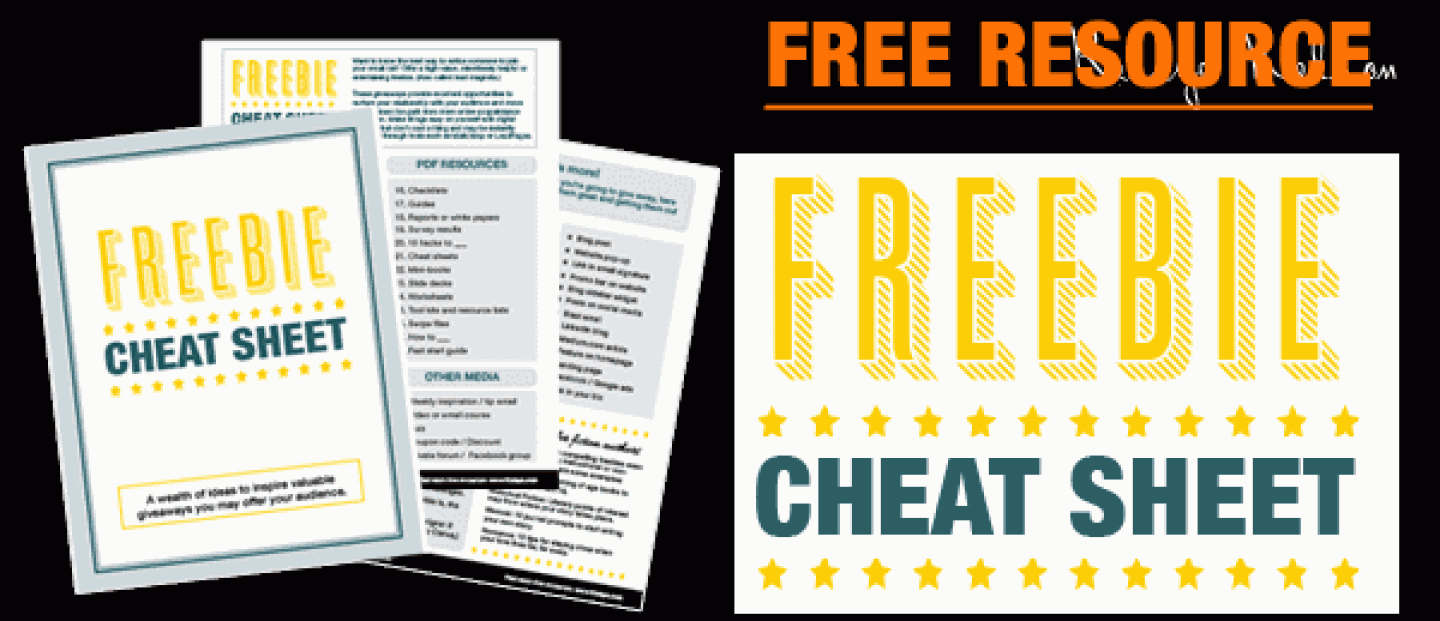
Want to know the best way to entice someone to join your email list? Offer a high-value, relentlessly helpful or entertaining freebie. (Also called lead magnets.)
These giveaways provide excellent opportunities to nurture your relationship with your audience and move people down the path from mere online acquaintance to true fan. Make things easy on yourself with digital freebies that don’t cost a thing and may be instantly delivered through tools such as Mailchimp or LeadPages.
Fiction authors in particular may struggle with coming up with things they may offer for free. Even if you don't publish instructional material, you can offer enticing giveaways such as audiobook samples, book club activities or even collections of journal prompts to help get other people writing.
If you write non-fiction, there's a plethora of perfectly pleasing perks you may publish. People seem to really love checklists and how-to guides - anything that makes it easy for them to do whatever it is they're trying to do!
I've listed 33 giveaway ideas for authors on this free download. I also included tips on getting your freebies out into the world and what tech tools you may use to collect email address.
Want help figuring out how to use these freebies to entice new readers to sign up for your email list? This is exactly what I teach in Small Town Writer, Big World Audience. >> Check out the class.
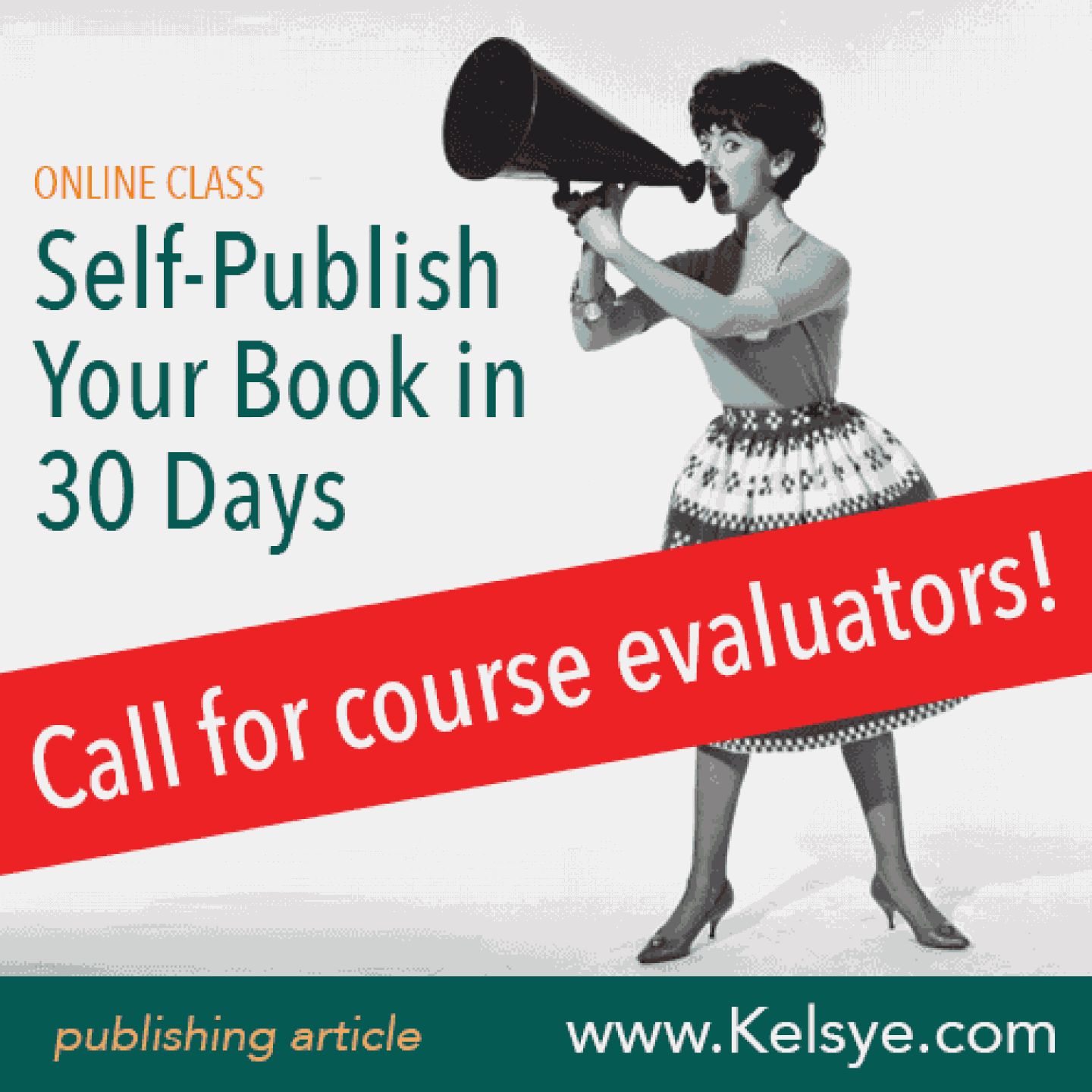
I'm opening my popular self-publishing course in September. Since it's been over a year since I've offered this class, I must update the content to include the information independent authors need right now. The publishing world moves fast! So, for 48 hours only, I'm opening up the course for pre-registration to writers willing to act as course evaluators.
As a course evaluator, you'll receive access to the entire course at a drastically reduced rate. In return, you'll share your current self-publishing challenges and needs with me. Your input will help me update the course.
Why take the self-publishing course?
This webinar series will walk you step-by-step through the self-publishing process. If you would like to self-publish, but are overwhelmed with the process or simply don’t know where to start, this class is perfect for you. Even if you have no publishing experience and little technical ability, you’ll be able to publish a professional quality book and avoid the errors that plague so many un-supported indie authors.
By the end of the 4 week program, you will know:
You can view a course syllabus here. (Subject to change based on evaluator input!)
What does a course evaluator do?
The responsibilities aren't difficult, just incredibly valuable. (Hence the extremely reduced class price.) As a course evaluator, you would promise to:
In return, you get access to the full course for $37. That's $260 off the retail price of $297.
You will not be able to register for this course at a lower price. Once we hit midnight tomorrow, this opportunity is gone for good.
Course evaluator registration will only be open for 48 hours.
>> Register now.
I GREATLY appreciate the input you have. By signing up to be a course evaluator, you're helping me understand the challenges independent authors and writers face now.
Plus, you'll be able to access my well-reviewed and extensive self-publishing course for a fraction of the price offered to the general public. Win-win!
Click here to learn more about the course and registering as an evaluator.
Thanks for taking a look!

Do you struggle with the same book marketing challenges as other authors in your field?
I released a book marketing challenges survey earlier in the year and received responses from 93 authors. Some authors were just starting out self-publishing their books, others have published traditionally for years and years. Despite the wide range of experiences, there were a few themes that kept coming up.
Here are the most-reported book marketing complaints:
Scroll down to read actual quotes pulled from the survey. But first, here are the numbers:
Primary income sources: 93 authors completed the survey. 10 of these authors make most of their income from book sales. The other 83 authors have another source of income.
Publishing cost: While many authors spent none of their own money publishing their books, others spent over $20,000.
Marketing budget: While most authors spent less than $500 marketing their books, many more invested thousands of dollars into their book marketing efforts.
Stage of career: Authors that answered the book marketing survey were in all kinds of stages of their writing career. Some were very well established, others were just starting out.
“My main problem is getting interest in my books.”
“I feel like I'm not reaching the folks who would buy my books if they knew about them.”
“I don’t know how to stand out in all the noise.”
“I thought i had a decent fan base but with a new book out this doesn't seem to be reflected in sales or reviews. There's so much online noise out there, how does one stand out? How do I make the most user of my time?”
“I don’t know which market or platform is the best for my books.”
“I don’t get noticed among the hundred and thousands of other releases. My blog is... a waste of time. No one visits except writer friends and colleagues.”
“I don't want or need marketing tips that are fast and easy. What I want is marketing that is EFFECTIVE.
“Despite having consistent and topical blog posts, I also rarely saw a return on the effort, and I'm burned out!”
“Instead of wasting my time say buying useless adspace or sending free copies of my book to a website with only 3 visitors, I want to know where I should focus my energies to find people who want to read my books.”
“I have worked hard cold-calling book bloggers for reviews, sending personalized review requests, and soliciting free newsletters to promote price-reduction sales, and looking for guests posts for an author who neither will promote nor spend any money to promote. I have failed in both reviews and sales garnered.”
“I will probably do a guerilla marketing campaign, dropping cards and stuff. But I don’t know if that will help at all. I feel like such a noob.”
“I can promote until I'm blue in the face, but the only thing that seems to get results is giving away my books, something I am loathe to do on anything other than a one-time, limited basis.”
“Posts that I make are not always seen. I don't know how many times to make a post or know when to make to reach my audience.”
“I deactivated my Facebook account a few years back primarily for lack of understanding. Although I have a Twitter account I have not taken the time to make it truly viable as a tool.”
“Social media seems like one massive endless swap and shop; people do stop to browse yet after piles of junk mail and slightly damaged articles offered as a real deal, they peruse seemingly legitimate offers warily.”
“I have trouble getting people to click through to blog posts and engage on topics surrounding the books. People are happy to approach and say that the books sound really interesting, but getting the clicks and better numbers is difficult.”
“I'm clueless when it comes to the internet. I'm sure I'm not using it properly to maximize sales.”
“With so many other novels flooding the market, it's difficult for me to find the time and motivation to chase marketing avenues. Oh now I have to write a blog, oh now I have to tweet about this, oh now I have to make a Facebook page about that. “
“Marketing is a full time job but so is writing and I simply don't have the time or the energy to do both.”
“I don't have the time or energy to put as much into social media as authentic relationships would demand.”
“Can I do it all alone with no contacts, author involvement or budget?”
“Which social media sites have the potential to help you market and which are a waste of time and effort?”
“I've gone to conferences and read all the information but it's not sinking in.”
“I have great ideas, but no time to implement them.”
“I struggle with being authentic while also promoting my book. I don't want to be one of those authors who is always pushing a link to her book (and there are a lot of them!).”
“I don't know what words to use to attract people without being cliché.”
“I hate being a salesman for myself. It feels awkward.”
“Plus, how do you promote yourself on social media without annoying people? I share when someone else says something positive about my work (through retweets, reposts, etc...) with a 'thank you' included, and I'm fine to share when my work is discounted, but otherwise, I don't know how to promote my work without feeling like I'm being a slimy used car salesman.”
“I don't like talking about my book or, worse, 'selling' people on my book. I just really hate being like ‘Buy my book! Buy my book!’ It is the worst.”
“Can I do it all alone with no contacts, author involvement or budget?”
“I don’t have the resources to do anything that will make a big impact.”
“I want to hire a professional to help me, but I don’t know if it will be a good investment or not.”
Do any of these book marketing complaints sound familiar to you? Clearly, you are not alone. Authors work very hard to identify effective ways to promote their books, while salvaging some time to write and work on their craft.
Did you find this survey interesting? Please share it using the buttons below. Thanks!

If you have ever worked in sales or marketing, you may have heard of the sales funnel. As you can see in the illustration below, social media sites (such as Twitter) are at the very tippy top of the funnel. This is where you get your first introductions. Potential readers may see your clever tweet and discover for the first time that you even exist.
This first discovery moment is not the time to ask for a book sale. Sure, if you ask 100 people, you might get one or two sales. Is that what you're after, one or two sales? Is it worth annoying the 98 or 99 other people that didn't take you up on your quick offer?
Use Twitter to entertain or inform your potential fans. Give them interesting content to earn their attention. Invite them to click through to your blogs, or freebies or collaborations.
Here's an example of how I invite my Twitter followers to come visit my website:
In SIX WORDS or fewer, write a story about how to get over it. Share it here: https://t.co/R2eRXq07KX #6words #story pic.twitter.com/AVWoBa6vhi
— Kelsye Nelson (@Kelsye) March 11, 2016
Since my audience is full of writers, I offer the fun game as a way to interact (play!) and drive traffic back to my blog. It's subtle and appreciated by those that participate. You'll notice there is no sales push. I'm not selling anything with these games. I use the games as a way to move beyond introduction and discovery and give my audience a chance to get to know me.
More directly, you can offer information or freebies on Twitter. Here's an example of just that:
Struggling with your creative projects? Free guide and video: Discover What You Love https://t.co/RCTTzyG4FT Created by @NFAJeff #creativity
— Avasta Press (@AvastaPress) March 15, 2016
This tweet really helps move potential fans through the funnel. Not only do we go past introduction to entice people back to the website, but we offer them something of high value for free. While they may watch the video right away, if they want the guide they need to provide their email address. Once we receive their email address, we have permission to continue building our relationship and provide them more offers leading to a single sale, or even a life of fandom. (So we hope!)
If you would like to know how to use Twitter without embarrassing yourself, just keep thinking of the network as a very first introduction to your potential readers. Give, give, give.... give resources, information or entertainment. Be yourself and don't worry about "pushing" anything. Provide opportunities to invite your followers back to your website or to your events. Keep thinking about what you can offer to move your potential readers through the funnel and closer to fandom.
Sign up for my 3-Day course "How to Get More Followers on Twitter." It's free and delivered via email, so you can complete it on your own schedule.
This is day two of my week of social savvy posts. Check back tomorrow to learn more about how to use Twitter to achieve your promotion goals.

Here are four reasons why I highly recommend authors that authors check out Twitter.
1. It's easy to find people on Twitter who have specific interests that align with your books.
This is also called "targeting' your market, which sounds like a mean thing to do but is actually very thoughtful. For example, if you write historical fiction set in the Pacific Northwest, you can identify readers who might be interested in your books by searching what they are tweeting and which accounts they are following. In this situation, you might search for people tweeting about other historical fiction books they've reviewed on Goodreads, or using a #historical hashtag, or retweeting the @Smithsonian magazine account.
2. You can scale quickly.
Scale matters. If you only have an audience of 100 people, those 100 people won't be able to provide enough support to promote or buys your books in quantities that will enable you to make a living (or break even!) as a writer. Simply by following people interested in topics related to your books, you can build a targeted, respectable following. (Here's help on how to do that.)
3. You can use tools to dramatically reduce the amount of time you actually spend on Twitter.
Would you believe that I spend less than an hour or so each week maintaining my Twitter accounts? It's true! This is possible with third-party tools that help you post content, manage your following and respond to mentions. Here's my magic formula:
Feedly - Used to find excellent content worth sharing
Hootsuite - Used to schedule content and monitor mentions, conversations and topics
Tweepi - Used to manage and grow my following
4. Twitter can drive a lot of traffic.
Most importantly, authors that manage to connect with a decent amount of likely readers can use the network to drive a lot of traffic to their website. Twitter (and all social media networks) are at the very tippy-top of the sales funnel. [ctt title="'Savvy authors understand that Twitter is where you make an introduction, not a sale.'" tweet="'Savvy authors understand that Twitter is where you make an introduction, not a sale.' http://ctt.ec/brdYN+ via @Kelsye #selfpub" coverup="brdYN"] Authors posting compelling blogs, offering awesome freebies or hosting online events may tweet links to turn Twitter acquaintances into website visitors, book readers and possibly, eventually, fans for life.
Twitter can help authors connect with potential readers, build a sizable following, save time on marketing and drive traffic home.
I might earn a commission if you purchase a service or item linked from this page. Thank you for your support! ❤️